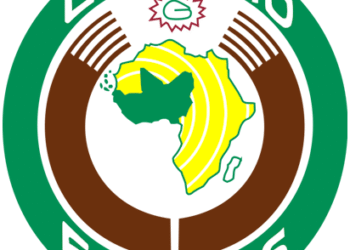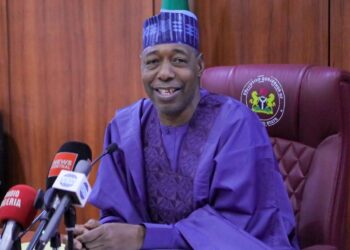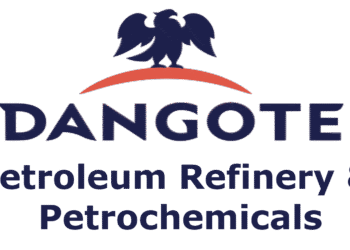Abuja – Oil-producing states in Nigeria received N448.67 billion as part of their 13% oil derivatives for the year 2021, representing a 5.8% increase compared to N424 billion shared in the previous year.
This is according to analysis of data culled from the monthly FAAC report, released by the National Bureau of Statistics (NBS).
According to the report, Delta State received the highest amount, with N141.93 billion, which accounts for 31.6% of the total amount shared in the period under review.
On the flip side, Lagos State received the lowest in terms of oil derivatives, accounting for just 0.8% of the total amount disbursed.
A cursory look at the historical shows that despite the increase in 2021, the amount shared in the review year was way below the N552.5 billion and N536.3 billion shared in 2018 and 2019 respectively.
Delta State received the lion’s share in the review year with N141.93 billion, representing an 8.7% increase compared to N130.57 billion received in the previous year.
Akwa Ibom followed with N91.16 billion, accounting for 20.3% of the total amount disbursed, while it represents a 3.9% decrease compared to N94.82 billion received in the preceding year.
Bayelsa State received a sum of N87.23 billion, which accounts for 19.4% of the total amount shared to the states.
Bayelsa’s collection in the period increased by 7.8% in contrast to the N80.95 billion received in 2020.
Others on the list include Rivers State (N83.12 billion), Edo State (N15.48 billion), Ondo State (N11.5 billion), Imo State (N9.14 billion), Abia (N4.78 billion), Lagos State (N3.78 billion).
It is worth noting that Suko also received a sum of N548.05 million in the review period, being the first time, the Gombe State region is earning from oil derivatives.
Recall that Gombe State signed a Memorandum of Understanding with Rift Oil and Petroleum Company in September 2021 for the exploration of petroleum products in the state.
Anambra State is set to join the list of states who earns 13% oil derivatives with effect from March 2022, as part of its benefits as an oil-producing state.
This was announced by the governor of the state, Willie Obiano while addressing members of the press after a tour of the Awka International Convention Centre and Anambra Cargo and passenger airport.
According to the governor, he was informed by the Nigeria Midstream and Downstream Pricing and Regulatory Agency (NMDPRA) who confirmed the lifting of crude oil in commercial quantity in the state.
The announcement is coming 10 years after Orient Petroleum struck crude oil in the state.
The state had been placed on what was described in the oil and gas industry as strategic reserve despite having abundance of crude oil and gas.
However, with continuous exploration being carried out in the state in commercial capacity, the state is set to start receiving from the 13% oil derivatives by March this year.
However, despite being oil blessed and receiving extra collections from the Federation Account Allocation Committee (FAAC), the oil producing states still account for a huge chunk of Nigeria’s domestic debts.
A deep dive into the numbers from the Debt Management Office (DMO) shows that the 9 states accounted for 41% of the states’ domestic debts as of September 2021, with Lagos State owing the highest (N532.12 billion).
The commercial hub of Nigeria, Lagos accounts for 13% of the total N4.19 billion domestic debts owed by the 36 states, including the federal capital.
Lagos State saw its domestic debt profile increase by N23.34 billion between January and September 2021.
In terms of external debts, Lagos owes a stunning $1.41 billion as of the end of 2020.
Similarly, Akwa Ibom has a domestic debt stock of N234.85 billion as of the same period, representing 6% of the total domestic debts, having acquired N4.04 billion new domestic loans between January and September 2021.
Meanwhile, six of the 9 states on the list makes the top 10 list with the highest internally generated revenue (IGR) in the first half of 2021.
Between January and June 2021, Lagos generated a sum of N267.23 billion internally, Rivers (N57.32 billion), Delta (N41.93 billion), Oyo (N25.19 billion), Akwa Ibom (N18.09 billion), Ondo (N17.91 billion), and Edo State with N17.64 billion.

















